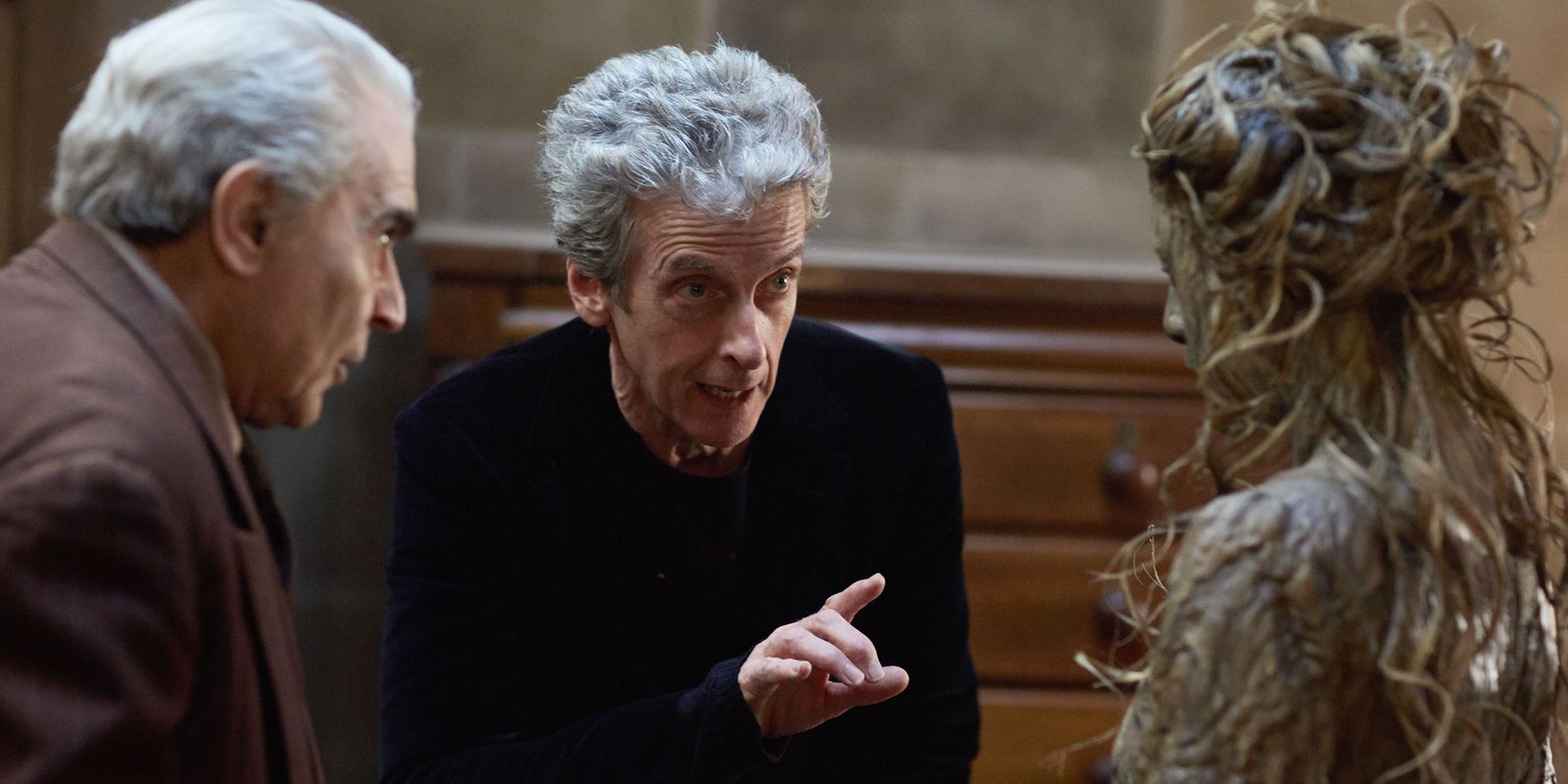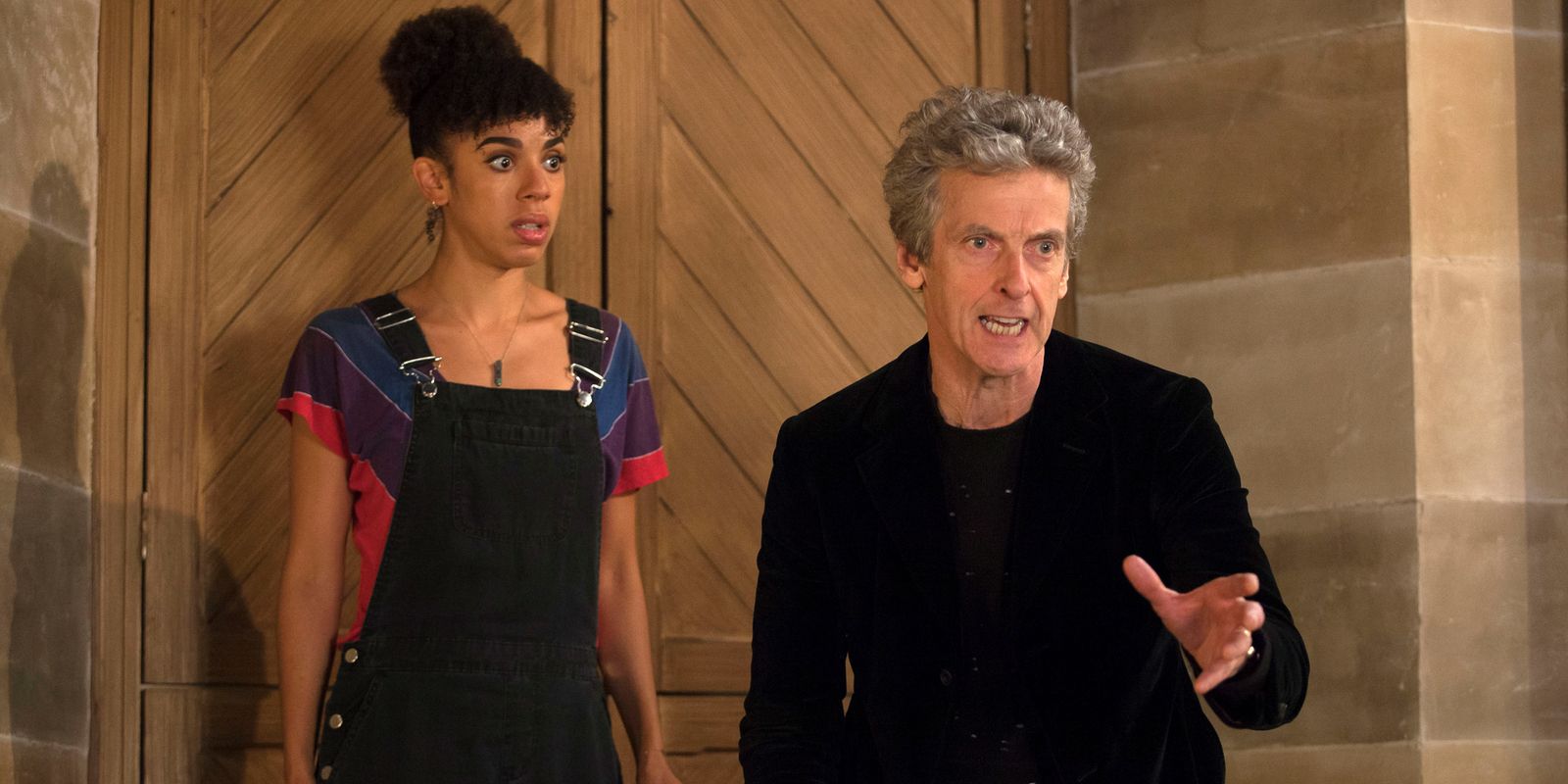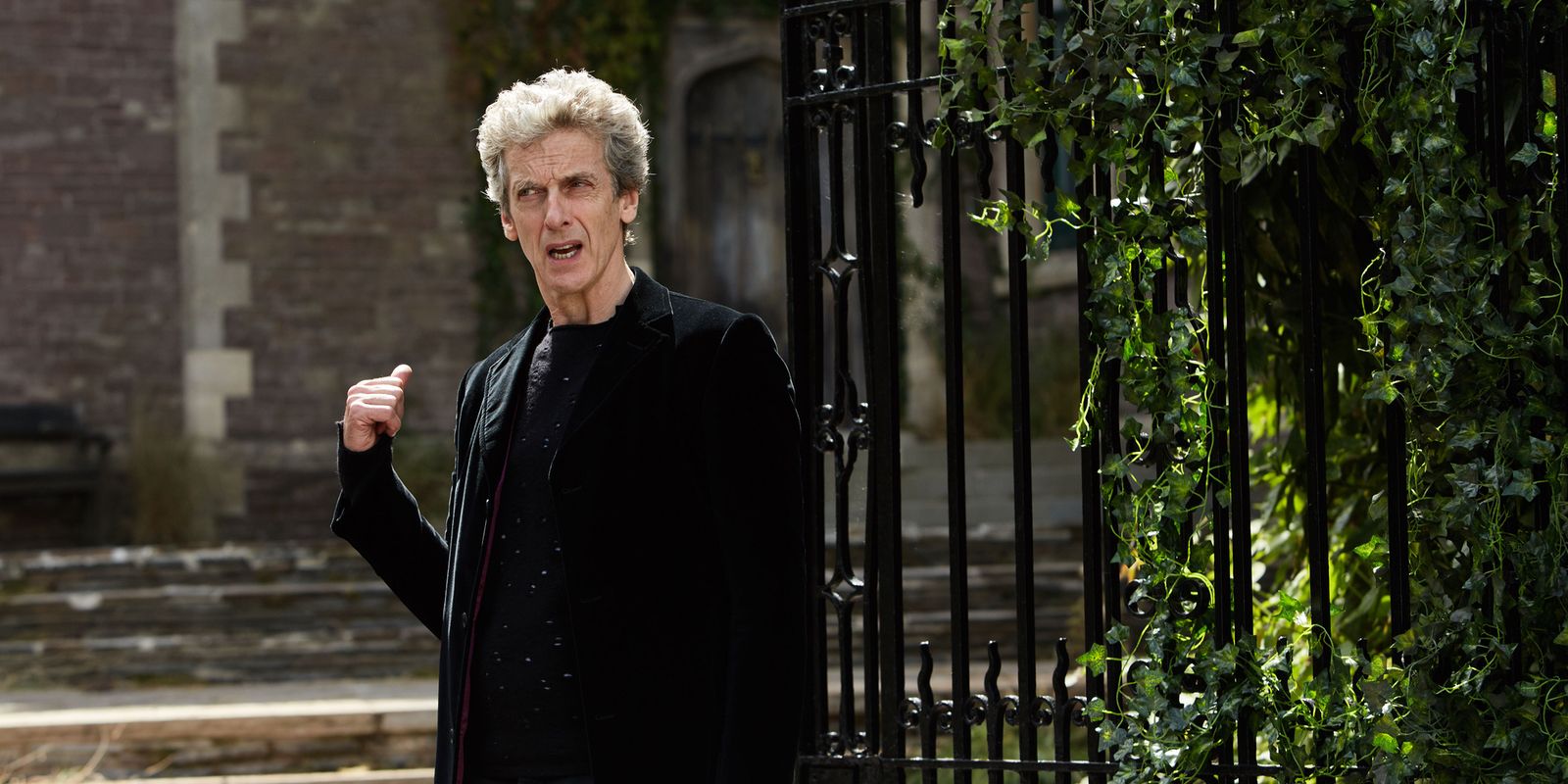Few television shows vacillate between tone and genre as easily as Doctor Who. So far during this short season, the series has offered a wide tonal variance between episodes, most notably going so far as to turn on hour into a time traveling costume drama featuring a giant imprisoned fish that excretes fuel for a fire. As if that wasn't enough, the episode managed to sneak in some not-so-subtle remarks about class and socioeconomics, just to round things out a bit. This week, the Doctor and his new companion Bill find themselves venturing toward a haunted mansion story in 'Knock Knock.'
Now that the getting to know you phase of Bill and the Doctor's relationship is more or less behind them they can begin functioning more as a team, and less as a tour guide and his patron. Bill was a little shell shocked at the idea her mentor could move past the death of a child (and others) so easily, while he explored the notion that, when you're over 2,000 years old, you learn the best reaction to an injustice like the one seen last week is to jump immediately into action, and, admittedly, Bill seemed to come around to the Doctor's way of thinking by the episode's end. After all, when all of time and space essentially falls under your purview, the larger picture is sometimes the only picture you're able to see.
Weighing the life of one against the lives of many has been a recurring theme during Capaldi's tenure as the Doctor, and with 'Knock Knock' the series places the Time Lord in a more intimate situation, almost like it's a test to see what he'll do when faced with a group of twentysomethings trapped in what appears to be a haunted house, complete with creepy landlord played by David Suchet, who's likely most famous for playing the role of Detective Hercule Poirot for many, many years.
With its basic premise 'Knock Knock' seeks to blend horror with comedy, before throwing in a surprising Psycho-like twist, upending the expectations the story. Suchet makes for a strong horror archetype, exuding a strange sort of menace that's difficult to put a finger on initially. His nonchalant use of a tuning fork for example shouldn't convey a threat at all, and yet because the episode plays off the typical structure of a haunted house story, the uncommon nature the device being used in such an unfamiliar way lends itself to the situation's uneasiness.
To his credit, Suchet never oversells the threat of his character. Instead he relies almost entirely on his ability to appear almost at will to generate feelings of anxiety. By the time he's revealed himself to be complicit in the murder of several young people over the past several decades, that fact is unsurprising, but Suchet is able to strike an unexpectedly emotional tone when the truth is revealed that it's his sick mother who is locked in the tower and has been saved/transformed by "space lice" that have become part of the old house on a cellular level. The moment's an awkward one, as it relies on the actor's ability to go from menacing, misguided father figure to strangely innocent child in a heartbeat. The turn is strong and convincing enough that it's almost okay to overlook the litany of troublesome questions that arise in its reveal.
As much as the hour hinges on Suchet's turn from malevolent landlord to weepy mama's boy, 'Knock Knock' is also interested in being an early turning point of the season. Bill and the Doctor are no longer in the getting-to-know-you phase of their relationship, and are comfortable enough with one another that Bill will as the Time Lord for use of the TARDIS in moving what amounts to a small stack of boxes into the new house she and her ill-fated friends have chosen to move into.
It's a small thing, but the only thin worse than moving is helping someone you know move. Even a two-hearted alien prone to venturing through time and space is likely to make up an excuse to get out of helping someone move unless he really likes them. In that sense, 'Knock Knock' should be commended for the economic way in which it conveys the extent to which Bill and the Doctor's relationship has grown. The idea is proven again and again throughout the hour, as the two seem to have developed a shorthand communicating with one another, with the Doctor easily taking on the mantle of her eccentric grandfather in front of her friends.
The growth of their relationship is demonstrated again in a different way, as Bill's response to seeing her friends be consumed by the space lice is met first with expected notes of fear and sadness before she quickly moves on to stopping the problem at hand; namely, the landlord and his wooden mother. Bill's role in the conclusion isn't a huge one, and all of her friends are mercifully restored to their living selves (because even Doctor Who doesn't want to have to deal with the emotional fallout of that next week) but the follow through from her heated discussion with the Doctor during last week's 'Thin Ice' is a nice touch during an episode tasked with conveying the message that Bill and the Doctor have reached a certain place in their partnership.
Making sure the core relationship is on solid ground is important, as the season reaches its halfway point next week and suggests a reveal of what's in the vault is right around the corner. The Doctor is certainly on speaking terms with whoever or whatever is in there (the good money at the moment seems to be on it being John Simm's the Master), which, along with the vault occupant's love for (or at least ability to play) Beethoven's Für Elise and more seems to be leading the audience down a particular path toward the mystery character's identity.
Next: Doctor Who: Clara Returning for 2017 Christmas Special?
Doctor Who continues next week with 'Oxygen' @9pm on BBC America.



